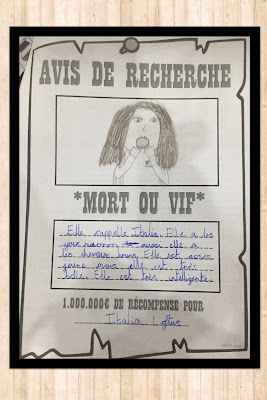This December, primary children from one of the schools in which I teach French, got involved in designing and painting a snowman
sculpture as part
of an inspiring Learning Programme supported by Salford City Council: Walking
with The Snowman.
Walking
with The Snowman was a festive sculpture trail that took place around
MediaCityUK, to mark the 40th anniversary of Raymond Brigg’s
heart-warming tale, The Snowman.
To learn
more about this festive event, please visit the following website:
or follow
@TheSnowmanWalk on Twitter.
As part
of this exciting event, a snowman themed week was organised in school across
all areas of the curriculum. In French
lessons, all KS2 children used their linguistic skills to design and describe a
Christmas jumper for their snowman! Pupils
were then invited to present their work to the rest of the class.
Y3
children were introduced to some nouns associated with Christmas and recapped
basic grammatical rules about gender.
They revised some basic colours and numbers. Finally, they
revisited basic grammar rules about forming plural nouns. They then enjoyed applying this knowledge to
design and describe a Christmas jumper for their snowman! Here are some of
their fabulous designs and descriptions:
Y4
children were also given the task of designing and describing a Christmas
jumper for their snowman… but their additional challenge was to use correct adjectival
agreements in the singular form! Here
are some examples of their wonderful work:
Y5
children were instructed to focus on using adjectival agreements in the singular
and plural form and/or expressing
opinions about their snowman’s Christmas jumper. Here are some examples of the amazing work
that they produced:
Y6
children paid particular attention to using the negative, in addition to correctly
using adjectival agreements in the singular and plural form. Here are some examples of their impressive outcomes:
The children
enjoyed tackling the grammatical challenges presented to them in this creative activity
in French lessons, and their outcomes (as showcased above) clearly demonstrate the
linguistic progression made across each year group.
At the
end of the snowman based week in school, a whole school assembly was held,
where pupils had the opportunity to share what they had been doing in class
with the rest of the school. Here are a
couple of videos that Y3 & Y4 edited to showcase their work:
Here is another video, showcasing work produced by KS2 children in a different primary school:
Some of
the children followed on by using their snowman based French work to
create a French Christmas card!
Bravo les
enfants!
NOTE
For primary language teachers who may wish to plan a similar activity, differentiated templates used
to support writing across KS2 can be found here:
There is a lot of grammar involved, so although the
support sheets are created with an appropriate learning expectation and outcome of each year
group in mind, the author points out that which one you choose will depend on the time
you have available, the children’s prior knowledge and their linguistic ability.



















































































